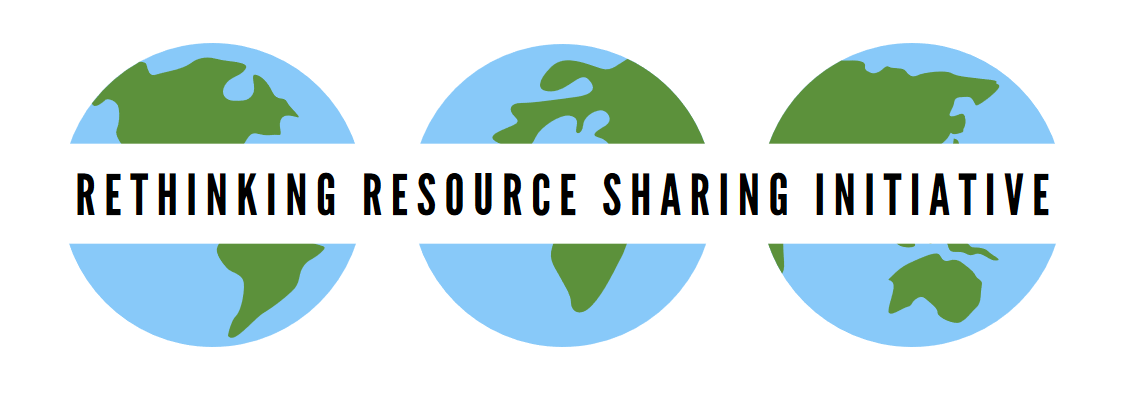In the fall of 2016, the Virtual Library of Virginia (VIVA) consortium signed ebook contracts with Brill, Oxford University Press, Taylor & Francis, and Wiley that have lending rights for whole ebooks. There is some variation within the language in each contract, but our libraries are allowed to either send whole ebooks downloaded from the platforms or create single/merged pdfs from individual chapter pdfs and lend them to other libraries. This is not restricted to resource sharing via Occam’s Reader; these loans are allowed within the normal workflow and software our libraries already use for interlibrary loan.
VIVA is the consortium of the 72 nonprofit academic libraries within the Commonwealth of Virginia. Our members include the 39 public colleges and universities, 32 nonprofit independent colleges and universities, and the Library of Virginia. Our consortium was founded in 1994 in large part to enable greater and more efficient resource sharing among our member libraries, and in our over 20 year history, over 2 million books, journal articles, and more have been shared by our libraries with one another. In the most recent fiscal year, our member libraries lent just under 180,000 items, around half of them to libraries within the consortium and half to libraries outside the consortium. VIVA also has a robust cooperative collection development program that provides an extensive collection of academic and professional content for its member libraries.
Libraries have struggled to gain whole ebook lending rights since ebooks began, due to publisher concerns about loans replacing purchases and interest in monetizing this access through short-term “loans” directly from the vendor. Libraries have gained ground in this area, but largely in chapter-level ILL, which is most often offered by publisher-direct purchases and not for aggregated, subscription/demand-driven/evidence-based collections. Occam’s Reader software was an important innovation in whole ebook lending, but the participating publishers were limited and the file shared with borrowers was an image-only version of what had been a robust PDF file.
Whole ebook ILL rights became a priority for VIVA during its monographic collection analysis project, which took place between 2013 and 2015. Over the course of this analysis, it became clear that VIVA institutions would benefit by building collections in partnership with one another rather than duplicating content across many libraries, but in the electronic environment this concept could only thrive if institutions could lend the whole ebooks to each other’s users. Whole ebook ILL was therefore a strongly emphasized and negotiated component of the consortium’s Request for Proposals for Ebook Collections, released in June 2016.
Once the rights were gained in the contracts resulting from the RFP, it became a question of how to lend the ebooks efficiently and effectively. A task force subsequently developed best practices and guidelines for the lending of these whole ebooks, with specific recommendations for each publisher and platform. These guidelines include treating requests for whole ebooks as copy requests/articles, guidance on using conditionals to route requests effectively, file compression, and more. There have been a few lends of whole ebooks to date, and this is expected to increase as users and libraries are more aware that it is an option.
This is a permanent change to VIVA’s resource sharing practices, as it applies to purchased, perpetual access books that are part of our libraries’ collections, and it has given VIVA even greater momentum in advocating for these rights in all future ebook contracts. We have heard from many libraries and consortia that plan to advocate with renewed energy for the right to lend whole ebooks, and we hope that this is a turning point for resource sharing of ebooks, particularly of the monographic format.
This change speaks to a number of the principles of the Rethinking Resource Sharing Manifesto, including “Restrictions shall only be imposed as necessary by individual institutions with the goal that the lowest-possible-barriers-to-fulfillment are presented to the user” and “Global access to sharable resources shall be encouraged through formal and informal networking agreements with the goal towards lowest-barrier-to-fulfillment.” By making the ebooks available to borrow in their fullest version, VIVA has effectively removed longstanding barriers to ebooks and has turned the spotlight for this on a global stage. International libraries now have the ability to not only request the material but also look at their own contracts and attempt their own negotiations.
Finally, and most importantly, it is the users that benefit from these rights. This initiative speaks directly to the principle of the Rethinking Resource Sharing Manifesto that “Library users shall be given appropriate options for delivery format, method of delivery, and fulfillment type.” There is no question that receiving the whole ebook in a robust PDF format is a better experience for library borrowers than receiving only a chapter, an image-only version that cannot allow text searching, or nothing at all, and it expands the usefulness of this content far beyond that of the holding library.
Anne C. Osterman
VIVA Director
George Mason University
4400 University Drive, MSN 2FL
Fairfax, VA 22030
703-993-4652
aelguind@gmu.edu
